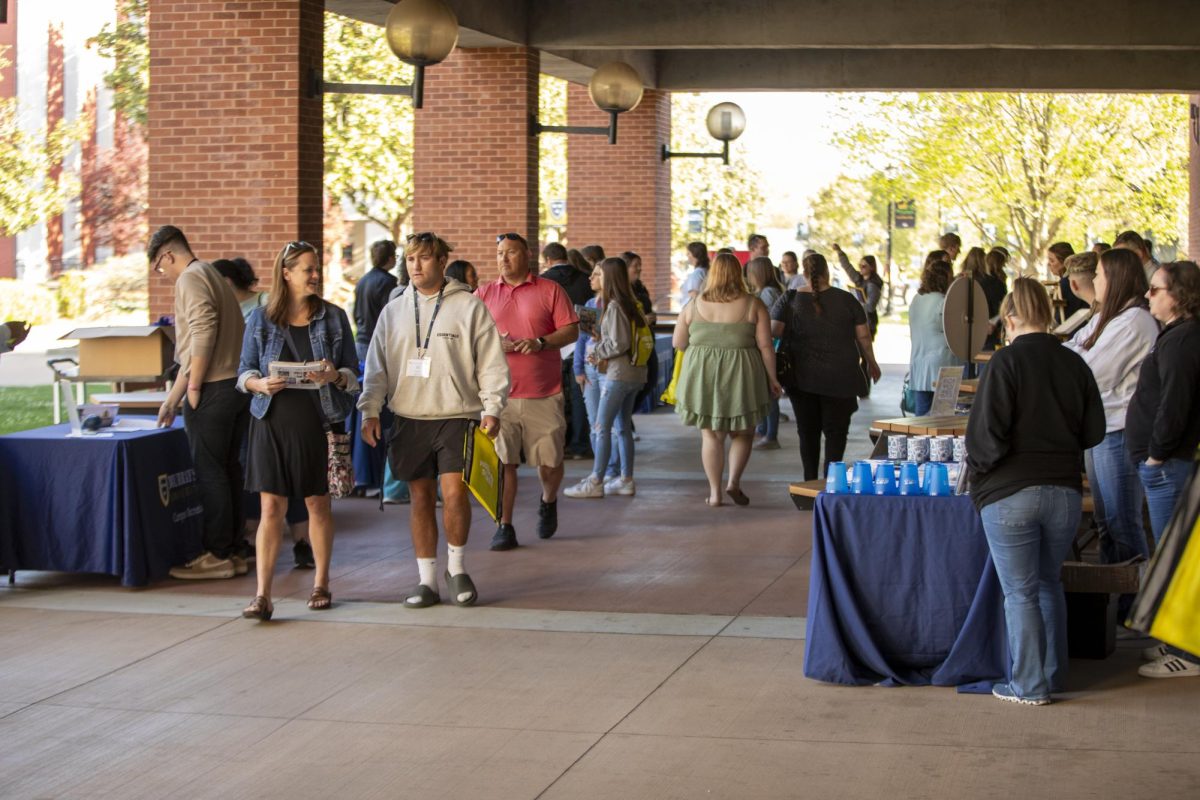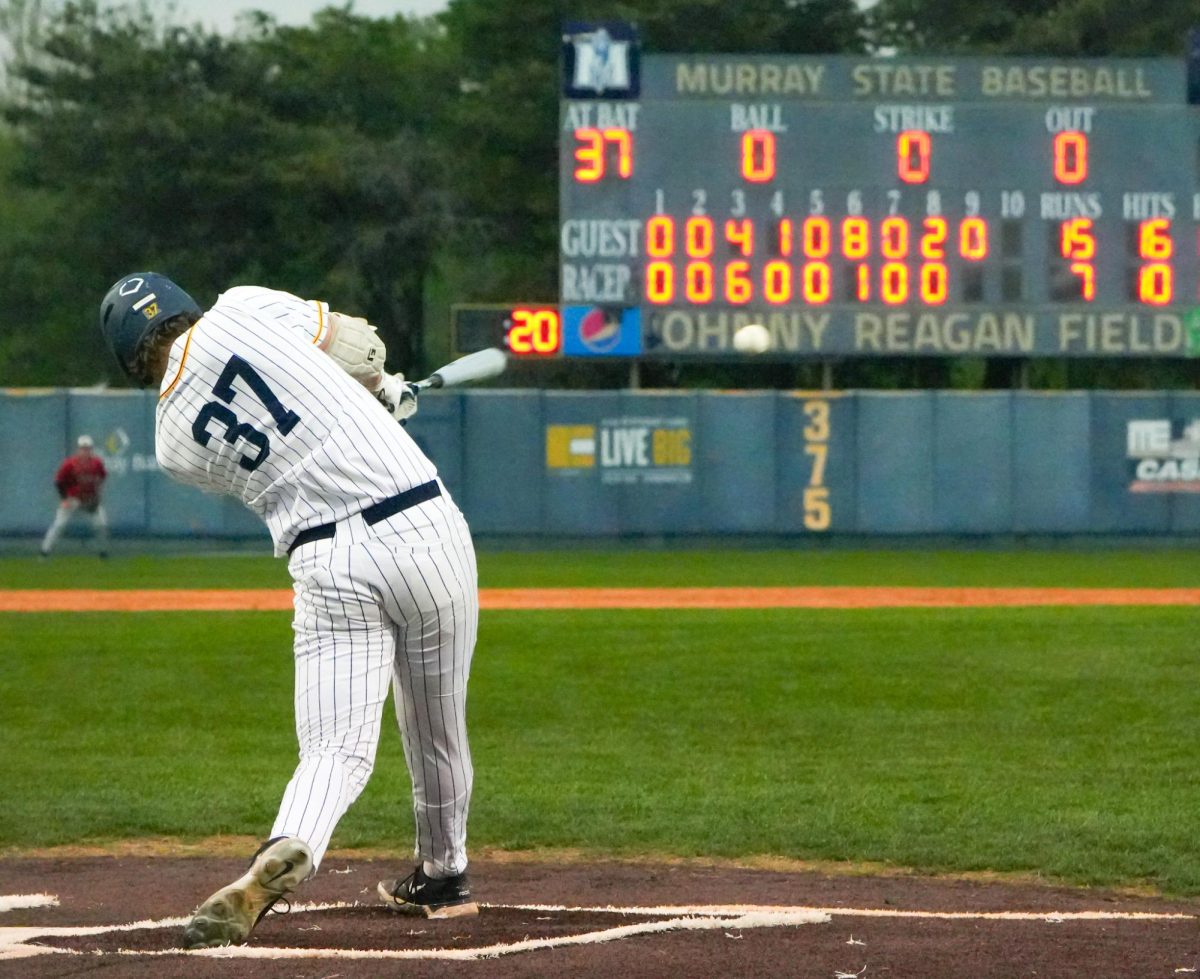Dionte Berry
News Editor
[email protected]
This is part two of The News reporting on the adherence to the Timely Warning policy
The lack of Timely Warnings regarding campus crime brought into question the Murray State Police’s job of adhering to the rules of the CLERY Act, but the police reassured campus that guidelines are being followed.
The News raised the concern over the timely warnings when it was seen that there were three rapes reported in September and campus was left unnotified. Murray State Police Jeff Gentry said the rules regarding Timely Warnings were being abided by, that they only applied to cases that pose an ongoing threat, such as those where the perpetrator has not been identified.
Campus groups such as the College Democrats and the Student Government Association also looked into the issue.
The College Democrats made a statement via Instagram concerning the incidents and the adherence to the CLERY Act.
“There were three incidents of sexual assault reported on campus in the month of September, yet the University claims these incidents did not warrant for a timely warning to be issued,” the caption said. “Students should not have to rely on the crime log to be informed about what is happening on campus.”
Senior political science major, Daniella Tebib, the media manager for College Democrats said the university should do more to keep students informed.
“We are not asking for any compromising details, but if University administration feels comfortable enough putting it on the public fire and crime log, then I don’t see why they can’t alert the study body as well,” Tebib said.
Even though the rape incidents reported in September did not fulfill the standards for the timely warnings, Tebib said because it was a reoccurring incident over the course of a month, there should have been some sort of alert.
“We understand that this is a decision in the hands of the administration and it is a lengthy process,” Tebib said. “We also know how important it is to be conscious of the safety of victims and privacy of ongoing investigations, but our campus community deserves to know about sexual assaults, especially when three rapes are reported in one month.”
Members of SGA also expressed concern over the lack of timely warnings, and raised questions that were clarified by SGA Chief Justice, senior Ty Allen.
As Chief Justice, Allen presides over the Judicial Board, which serves as jurisdiction over cases on campus concerning a wide range of issues that concern campus law.
At the Nov. 3 SGA meeting, Allen announced, after having a talk with Gentry, the criteria for timely warnings would not be changing.
Even though the concern for petty theft was raised, Allen said the criteria would not budge in order to make sure the campus body is not bombarded with alerts about small crimes.
“I know a lot of people do not like this criteria, but it is one of the best when it comes to crisis management because you do not want to be bombarded with alerts about petty theft,” Allen said.
For those concerned about crime, Allen said they could check the campus fire and crime log. The log is updated every day Monday through Friday.
“Timely warning will only be for crimes they were not able to make an arrest for and anything that is of critical importance, like a serial crime, is committed over and over again,” Allen said.
The CLERY Act outlines what is considered timely, but their guidelines are not concrete. Allen said, in the past, timely warnings were far more expansive to include a wider range of crimes.
“Students were bombarded with notifications of every single crime happening on campus, including those as minor as petty theft or even someone reporting that something was missing from their dorm,” Allen said. “We have updated the criteria for these Timely Warning notices to best serve our student body, and now students will only be notified about an issue if it is an immediate threat.”
After not receiving a Timely Warning since February 2020, the campus body received a Crime Alert on Nov. 5 after a student reported a man in a black mask, hat and shirt was seen fondling himself outside of a window of the New Fine Arts building.
A follow up alert said a suspect was identified and an arrest was made.
Unlike this crime, the September rape incidents have clear victims, and according to Gentry, a timely warning would most likely not be appropriate for those crimes because of the sensitive nature of them and how it may affect the investigation process.
“These crimes deeply affect the survivors, and it is our mission to protect them from further harm,” Gentry said. “For each crime that was mentioned, our officers identified and took steps to safeguard the survivors and campus body from further threats. A Timely Warning in those cases would not have been necessary.”
Gentry said the suspect in all of those rape reports were identified as well, further disqualifying them for a timely warning.
If there is a crime trend, however, that could warrant a timely warning.
“An example would be bicycle thefts that keep occurring over several nights,” Gentry said. “If we received information that demonstrated a trend, or possible ongoing issue, we would send out a crime alert that provides safety tips and a general synopsis of what is occurring.”
At the end of the day, if a report does not have an ongoing threat, a trend or an unidentified suspect then it will most likely not qualify for a timely warning.
Timely Warnings serve to inform those on campus if there is a possibility that they may be affected by a crime; it does not serve to inform them for the sake of having an informed campus.




































































































